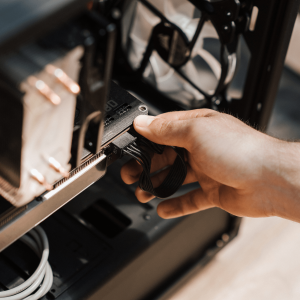Our workspace cabling designs deliver maximum connectivity & efficiency
STRUCTURED CABLING
Our senior engineers weave
professional-grade cabling solutions
Our streamlined approach to cable infrastructure installation not only simplifies troubleshooting but also guarantees that all telecom elements adhere to the latest industry standards. This meticulous attention to detail ensures a seamless and efficient communication network that meets your business needs both now and in the future.
Partner with Technology Force for expertly designed networks and robust structured cabling solutions that lay the foundation for reliable and high-performance telecommunications in your organization.
Located in and around Long Beach, Los Angeles, Orange County, San Diego, San Francisco, San Jose, Anaheim, San Bernardino, and Riverside in California, as well as Gilbert, Phoenix/Scottsdale and Tucson in Arizona, and Minneapolis/St. Paul in Minnesota, Technology Force is geographically positioned to deliver comprehensive, onsite hardware and software support tailored to your needs.
The primary purpose of structured cabling systems is to provide telephone, Internet, VOIP, and wireless connectivity to the entire building as efficiently as possible, as well as connecting the building to external service providers.
Structured cabling systems comprise of six distinct subsystems, serving as the physical backbone of the building’s internal network. Here’s how each one functions.
Equipment Room Wiring
An Equipment Room (ER) is telecom jargon for any room containing what is known as consolidation equipment: routers, network switches, PBXes, and additional cables. ERs must be tightly climate-controlled to combat overheating and eliminate humidity.
Work Zone Cabling
A work zone or work area is any room in the building where you can find equipment operated by the end-users. Examples include desktop PCs, laptops, wirelessly connected devices equipped with Wi-Fi or Bluetooth, and other equipment designed to be plugged into a wall outlet.
Telecom Room Cabling
Telecom Rooms (TRs) are rooms that house jumpers, patch cords, and horizontal cross-connects. TRs are where backbone cabling ends, and horizontal cabling begins, distributing the network’s vertical (backbone) cabling into a series of horizontal connections.
Backbone Cabling
Backbone cabling (sometimes called riser cabling) is the dense array of twisted-pair or fiber optic cables running through your building. Its purpose to connect equipment rooms to horizontal cross-connects, where horizontal cabling begins.
Horizontal Cable Management
The horizontal cabling array is the collection of cables, cable terminations, and cross-connects running from telecommunications rooms to outlets inside a work area. Strictly regulated, arrays must conform to standards outlined in ANSI/TIA 568.
Entrance Point (MPoE)
Also known as the Minimum Point of Entry (MPoE), this array of cables, connecting hardware, and network protection devices exists to separate your building’s internal network from the telecom company or internet service provider’s external network.
We handle your IT needs. You focus on your business.
- Safeguard your network and data 24/7/365
- Get high-quality services and expert support
- Use the latest, most effective, and secure software without having to buy it
- Minimize hardware ownership and reduce costs associated with maintenance, cooling, and replacement
- Ensure compliance with industry regulations and standards



